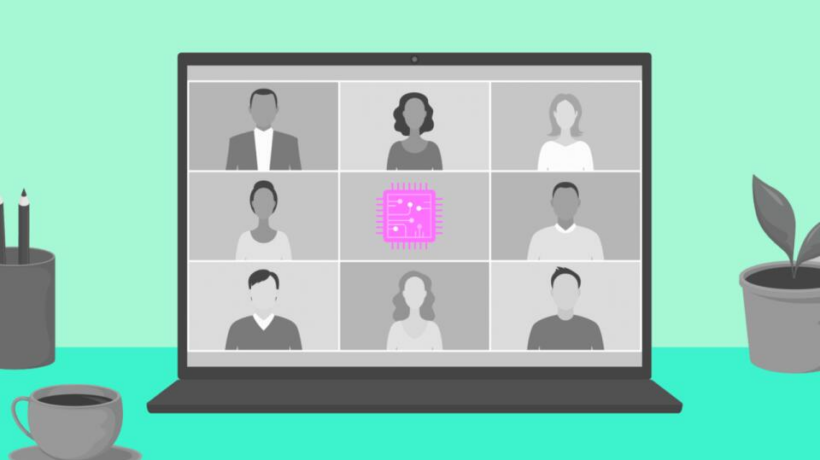In the future, technology may allow companies to operate without leaders. That’s because Web 3.0 and the widesprefad adoption of blockchain have created the potential for decentralized autonomous organizations (DAOs) to exist.
I’m a software engineer and technical copywriter. My job is to understand technology and to be able to clearly communicate how it works and how it can be applied. So here’s what DAOs are, why they’re important, and how they may change work.
WHAT ARE DAOS?
In a nutshell, DAOs are legal structures that have no centralized authoritative governing body. Instead, a DAO is made up of a variety of members who all act collectively to make decisions and pursue common goals. Think of these as organizations with bottom-up management systems rather than top-down management systems.
DAOs are only possible through the adoption of digital currencies and blockchain technology. By their very nature, blockchain systems and currencies are decentralized; they aren’t controlled by any one institution, like a central bank or government. Instead, the currencies and records of currency amounts are distributed among networks and nodes (i.e., computer terminals).
HOW DO DAOS WORK?
Most DAOs rely on smart contracts, encoded agreements based on blockchain networks that dictate decision-making powers based on the underlying activities or records of a blockchain.
As an example, depending on the outcome of a DAO vote, a code might be implemented to increase the number of coins, delete a portion of the coins, or even execute a company-wide pivot towards AI.
DAO votes occur on a blockchain. This ensures that the public ledger contains the only record of an organizational vote or decision, and should theoretically prevent anyone from tampering with records. Users have to select between mutually exclusive options when voting, and voting power may be distributed across a user network based on how many tokens they hold.
Businesses can also apply the DAO model through tokenization. All of the owners or board members of the company have a certain amount of leadership tokens, which dictate how much voting power each has.
HOW WILL DAOS IMPACT THE WORKPLACE?
Many of us in the tech industry believe that DAOs will have a major impact on workplaces across various industries. Here are a few of the potential ways DEOs will change the future of work.
Corporate leadership
Proponents believe that DAOs will completely redefine corporate leadership and how it functions. Rather than a small board of directors or executive team deciding on everything for a business, organizations can invite all employees to share leadership tokens and make decisions regarding the company’s future.
DAOs have the power to impact the workplace by democratizing leadership and giving employees greater control over the future of their collective companies. I believe this could be a great thing for workers’ rights and income levels. Companies, after all, profit off of the labor of workers and workers deserve to be compensated appropriately.
Corporate communication
DAOs also have the power to disrupt corporate communication and branding. The collaborative nature of these decentralized entities opens the door for an entirely different approach to messaging.
Traditional press release distribution, often controlled by a singular PR department or an external agency, will likely take on a new form within a DAO. Here, the process is transparent, subject to community approval, and often enhanced by the diverse perspectives of its members, which could make for more engaging and authentic public announcements.
Optimists believe that DAOs can put an end to cheesy, robotic press releases. If the majority of token holders want to be blunt and honest, the release will come out as such.
Working from home
Evangelists also argue that DAOs will make organizations more productive, allowing organizations to stop mandating 40-hour workweeks. The same hypothesis holds that employees might contribute several hours each week to several different DAOs.
As an example, the creator economy, populated by bloggers, video makers, and podcasters, has members who earn income from many different projects and monetization streams.
These trends will likely further reinforce the position and popularity of remote work. When organizations and all of their employees can vote on matters and make business decisions from afar through DAO frameworks, why would anyone want to commute to the office?
To be sure, there are also challenges and risks that early adopters of DAOs will need to overcome. For instance, humans only have a limited amount of energy for information and decision-making. It’s unlikely that everyone will participate in every potential decision or vote that a DAO enables. What’s more, smart contracts don’t eliminate any of the social or political dimensions of governance, so there is of course always a risk of bad actors. Plus, setting up the infrastructure for cryptocurrencies, blockchain networks, and DAOs themselves can be difficult, and it relies on existing IT infrastructure or massive investments in a new one.
All in all, DAOs have the potential to truly revolutionize how we do business and how we govern ourselves. Ultimately, I believe it is only a matter of time until DAOs become even more popular and widespread worldwide.







